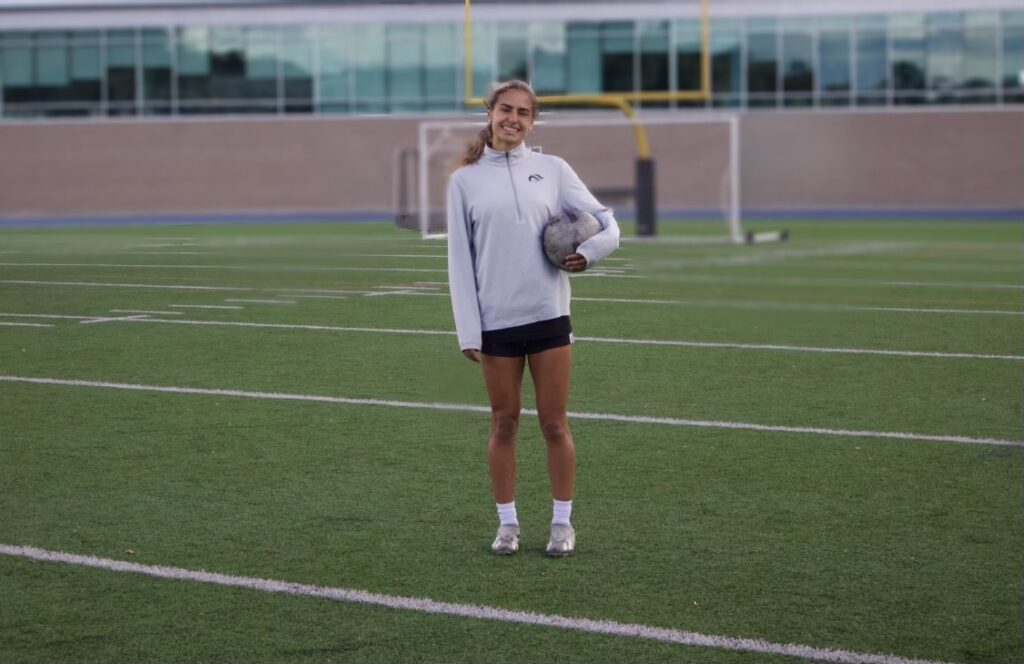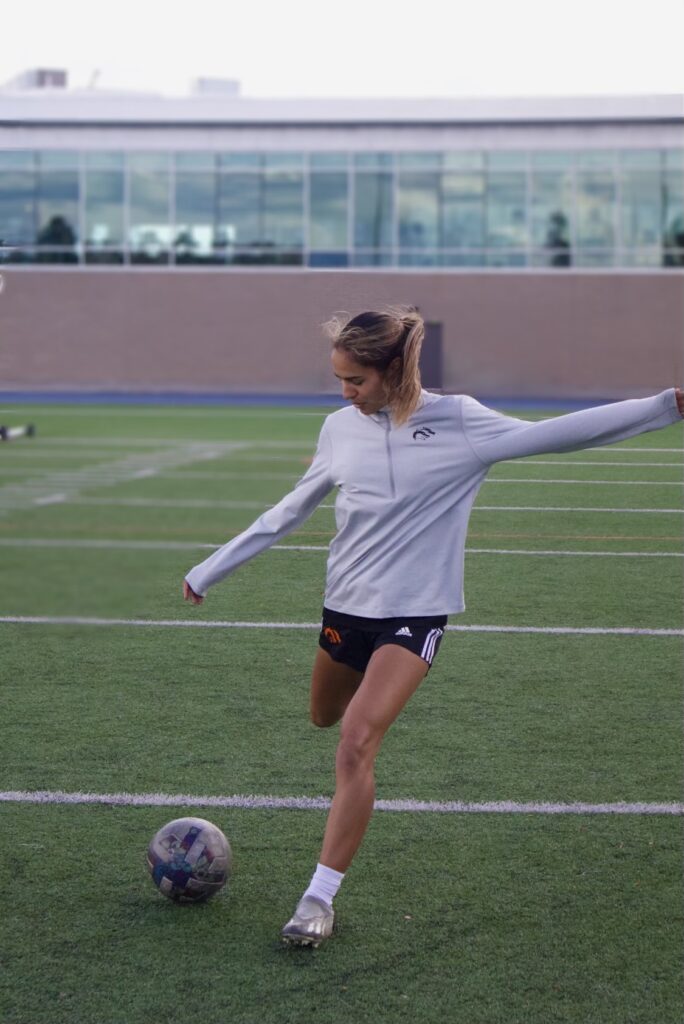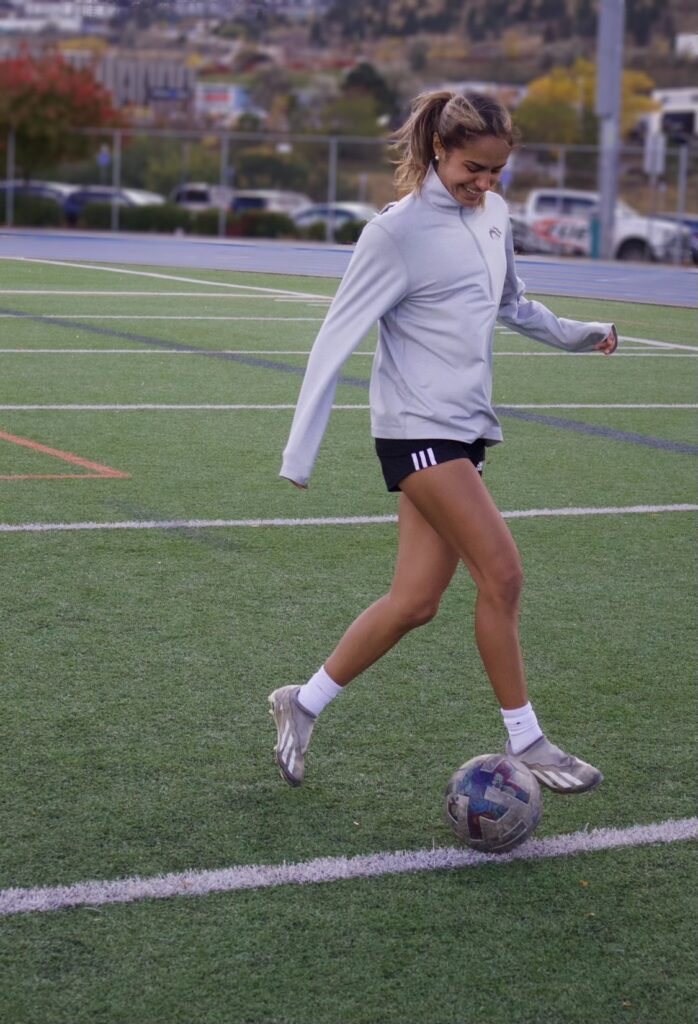Nina Jahnke

Throughout the past several years, compelling conversations surrounding women’s sports have grown greater in their recognition. Moreover, female athletes and their respective mental health battles have created momentous discourse in the realm of athletics. Ranging from the societal pressures to perform at their peak levels to the scrutiny surrounding body image, female athletes have finally arrived at a place within sports communities to be able to openly discuss how they navigate the unpredictable seas of mental illness.
Raiya Rumo, a fifth year TRU student and fourth year player on the TRU Women’s Soccer team is among those who promote such conversations, especially during Mental Health Awareness Week.
Raiya’s Journey Navigating Mental Health

After a spirited, passionate practice this past Tuesday, Raiya sat down to discuss her thoughts concerning female athletes’ mental health. When initially asked about her personal journey with mental health throughout her athletic career, she explained that she’s no stranger to mental challenges as a player. She stated that “there’s definitely been some struggles being a leader on this team, because I’ve done so well, there’s been a big pressure to continue to do well and to keep being the leader that everyone expects me to be.”
Raiya explained that soccer both generates and relieves stress in her life, acting as an outlet from her school and work life, but the source of the stressful standards she places on her shoulders every time she steps onto the field.
Additionally, Rumo talked in eager detail about who inspires her. Her captain, Ainsley Grether, a “sisterhood figure” who has assisted her in becoming an effective leader. Throughout the interview, she ultimately conveyed that although she holds the expectation of improving each year, something she learnt, which has come from time, is that it’s important to play the game for the right reason, because she loves it.
High Hopes for the Future

Regarding progress made, Raiya expressed her optimism. She stated that “luckily there are so many amazing female athletes that are so vocal about mental health in sports today.” Moving forward, she explained that she would appreciate being able to witness progress in the coach to player dynamic and described how that crucial relationship influences the players abilities and mindsets.
A leader on and off the field, Raiya left the interview speaking to the importance of prioritizing mental health in sports, especially among young girls. She exclaimed, “not every day is going to be a good day, and that’s okay. That’s important.”
(R. Rumo, personal communication, October 8, 2024)